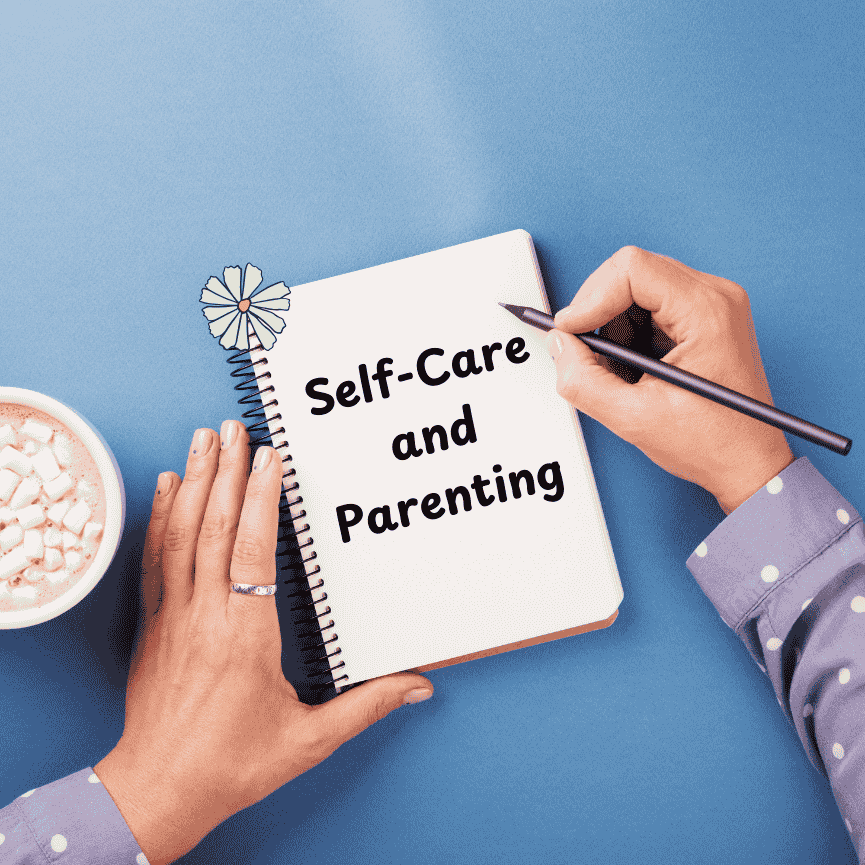
- Feb 04, 2025
- 150 Views
- 0 Comments
Self-care Tips To Prevent Burnout For Parents
Balancing Self-Care and Parenting: Tips for Avoiding Burnout as an Autism Parent
Parenting is challenging in itself, but when your child has autism, the demands can feel overwhelming. As a parent having a child with autism, you’re likely juggling therapies, appointments, and daily routines that can leave you feeling exhausted. However, balancing self-care and parenting isn’t just a luxury—it’s a necessity. This article will provide you with practical tips to avoid burnout while caring for your child, ensuring that you stay healthy, both mentally and physically.
Understanding Burnout
What is Parental Burnout?
Parental burnout is a state of physical, emotional, and mental exhaustion that results from the prolonged stress of parenting. For autism parents, the risk of burnout is even higher due to the additional challenges that come with raising a child on the spectrum. Burnout can manifest as fatigue, irritability, feelings of hopelessness, and even detachment from your child.
Signs and Symptoms of Burnout in Autism Parents
It's crucial to recognize the signs of burnout early on. These can include:
- Chronic fatigue and lack of energy
- Difficulty sleeping or insomnia
- Increased irritability or frustration
- Feelings of hopelessness or helplessness
- A sense of detachment from your child or partner
- Difficulty concentrating or making decisions
Identifying these symptoms early can help you take action before burnout takes a more significant toll on your health and well-being.
The Importance of Self-Care
Why Self-Care is Crucial for Autism Parents
Self-care isn’t just about taking a break; it’s about recharging your batteries so you can continue to be the best parent possible. When you neglect your own needs, you risk becoming overwhelmed, which can affect your ability to care for your child effectively. By prioritizing self-care, you’re ensuring that you have the energy, patience, and emotional resilience to meet the demands of parenting a child with autism.
Common Misconceptions About Self-Care
Many parents feel guilty about taking time for themselves, thinking that it’s selfish or that they should always prioritize their child’s needs. However, self-care isn’t selfish—it’s essential. Taking care of yourself allows you to be fully present and engaged with your child, which benefits both of you in the long run.
Creating a Self-Care Routine
Identifying Your Self-Care Needs
The first step in creating a self-care routine is to identify what you need to feel recharged. This could be anything from getting more sleep, to spending time with friends, to pursuing a hobby you love. Once you know what you need, you can start incorporating these activities into your daily routine.
Incorporating Self-Care into Daily Life
Start small by carving out a few minutes each day for self-care. This might mean waking up a bit earlier to enjoy a quiet cup of coffee, taking a short walk during your lunch break, or practicing deep breathing exercises before bed. The key is to make self-care a regular part of your day, so it becomes a habit rather than an afterthought.
Practical Self-Care Tips for Autism Parents
Mindfulness and Meditation
Mindfulness and meditation can be powerful tools for managing stress. Even just a few minutes of focused breathing can help calm your mind and reduce anxiety. There are many apps and online resources that offer guided meditations specifically for parents.
Exercise and Physical Activity
Physical activity is a natural stress reliever. Whether it’s going for a jog, practicing yoga, or simply stretching, exercise helps release endorphins that boost your mood and energy levels. Find an activity you enjoy and try to make it a regular part of your routine.
Nutrition and Healthy Eating
What you eat can have a significant impact on how you feel. Eating a balanced diet rich in fruits, vegetables, lean proteins, and whole grains can help stabilize your mood and energy levels. Try to avoid excessive caffeine and sugar, which can lead to energy crashes and irritability.
Getting Enough Sleep
Sleep is essential for your overall health and well-being. However, many autism parents struggle with getting enough rest due to their child’s sleep issues or their own stress and anxiety. Establishing a regular bedtime routine, creating a restful sleep environment, and practicing relaxation techniques before bed can all help improve your sleep quality.
Building a Support System
The Role of Family and Friends
Don’t be afraid to lean on your family and friends for support. Whether it’s asking them to watch your child for a few hours so you can take a break or simply having someone to talk to, having a strong support system can make a big difference.
Connecting with Other Autism Parents
Connecting with other parents who understand what you’re going through can be incredibly comforting. Join local support groups, online forums, or social media communities where you can share experiences, tips, and encouragement.
Seeking Professional Help When Needed
Sometimes, the challenges of parenting a child with autism can be overwhelming, and that’s okay. Seeking professional help from a therapist or counselor can provide you with the tools and support you need to manage stress and avoid burnout.
Setting Boundaries
Understanding the Importance of Boundaries
Setting boundaries is crucial for maintaining your mental and emotional health. This means being clear about what you can and cannot do, both with your child and others. Boundaries help prevent you from becoming overwhelmed and ensure that you have the time and space you need for self-care.
How to Set and Maintain Boundaries with Others
Communicating your boundaries can be difficult, but it’s essential. Be honest with family members, friends, and even healthcare providers about your limits. It’s okay to say no to additional responsibilities or to ask for help when you need it.
Time Management Strategies
Prioritizing Tasks and Responsibilities
Time management is key to balancing self-care and parenting. Start by prioritizing your tasks and responsibilities. Focus on what’s most important and try to let go of anything that isn’t essential. This might mean delegating tasks to others or simply letting go of perfectionism.
Finding Balance Between Parenting and Personal Time
It’s important to find a balance between your parenting duties and personal time. Schedule time for yourself just as you would for your child’s appointments or activities. This could be as simple as blocking off an hour in the evening to read a book, take a bath, or enjoy a hobby.
Coping with Guilt
Why Guilt is Common Among Autism Parents
Many autism parents experience guilt, whether it’s for taking time for themselves, not being able to do more for their child, or even feeling frustrated or overwhelmed. It’s important to recognize that these feelings are normal and that you’re doing the best you can.
Strategies for Managing and Overcoming Guilt
To manage guilt, try to reframe your thoughts. Instead of focusing on what you think you should be doing, focus on what you’re already doing well. Practice self-compassion and remind yourself that taking care of yourself isn’t just beneficial for you—it’s also beneficial for your child.
The Role of Respite Care
Understanding Respite Care and Its Benefits
Respite care provides temporary relief for caregivers by offering short-term care for your child. This can give you the break you need to rest, recharge, and focus on your own well-being. Respite care can be provided by family members, friends, or professional caregivers.
How to Find Respite Care Services
Finding respite care services can be challenging, but there are resources available to help. Start by reaching out to your child’s healthcare provider or local autism organizations for recommendations. Many communities also have respite care programs specifically designed for families of children with special needs.
Involving Your Partner in Self-Care
The Importance of Teamwork in Parenting
Parenting a child with autism is a team effort. Involving your partner in your self-care routine can help ensure that both of you are getting the support you need. This might mean taking turns caring for your child so that each of you can have some personal time, or simply checking in with each other regularly to see how you’re both doing.
How to Support Each Other’s Self-Care Needs
Communication is key to supporting each other’s self-care needs. Be open and honest about what you need, and encourage your partner to do the same. By working together, you can create a supportive environment where both of you can thrive.
Embracing Imperfection
Letting Go of the Need to Be a "Perfect" Parent
It’s easy to fall into the trap of trying to be the “perfect” parent, especially when caring for a child with autism. However, perfection is an unrealistic goal that can lead to unnecessary stress and frustration. Instead, focus on being a good enough parent—one who loves, supports, and cares for their child to the best of their ability.
Focusing on Progress, Not Perfection
Celebrate the progress you and your child make, no matter how small. Whether it’s a new skill your child has learned or a moment of calm in a hectic day, acknowledging these achievements can help you stay positive and motivated.
Encouraging Independence in Your Child
How Fostering Independence Can Reduce Parental Stress
Encouraging your child to be more independent can help reduce the demands on your time and energy. This doesn’t mean you’re neglecting your responsibilities as a parent; rather, it’s about empowering your child to take on more tasks and make their own decisions, which can boost their confidence and self-esteem.
Tips for Teaching Independence to Your Child
Start by teaching your child simple tasks that they can do on their own, such as getting dressed, brushing their teeth, or preparing a snack. Gradually increase the level of difficulty as they become more confident. Provide plenty of praise and encouragement along the way, and be patient as they learn.
Celebrating Small Wins
The Importance of Recognizing and Celebrating Achievements
As an autism parent, it’s important to celebrate the small wins. These might be milestones in your child’s development, moments of connection, or simply a day that went smoothly. Recognizing and celebrating these achievements can help you stay positive and motivated, even on the tough days.
How to Build a Positive Mindset
Building a positive mindset takes practice, but it’s worth the effort. Start by focusing on the things you’re grateful for, both big and small. Surround yourself with positive influences, whether it’s supportive friends, uplifting books, or inspiring quotes. Over time, you’ll find it easier to stay positive, even when faced with challenges.
Balancing self-care and parenting is a journey, not a destination. It requires constant attention, adjustment, and, most importantly, compassion for yourself. By prioritizing self-care, setting boundaries, building a support system, and celebrating your wins, you can avoid burnout and continue to be the loving, supportive parent your child needs. Remember, taking care of yourself isn’t just beneficial for you—it’s essential for your entire family.



Comments - 0 comments till now